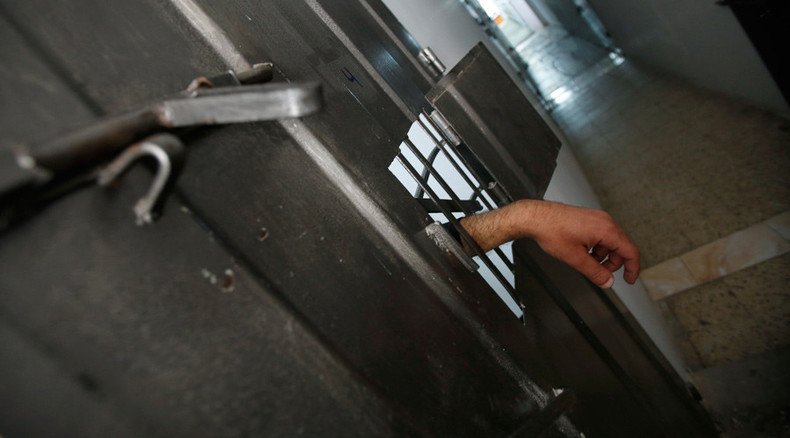Israel moves to legalize Gitmo-style force-feeding of hunger strikers

The Israeli parliament has passed a bill that allows the force-feeding of Palestinian prisoners who resort to hunger strikes to protest their administrative detention without charge. The national medical association said the procedure amounts to torture.
The 120-seat Knesset approved the controversial bill, with 46 legislators in favor and 40 against it. Called “Law to prevent harm caused by hunger strikes,” it describes a procedure that would allow prison staff to use rubber tubes to deliver nutrition to protesting detainees against their will.
The bill was approved by the Israeli government in June 2014 amid a mass hunger strike of Palestinian prisoners, but the parliament dissolved before the legislation could be put to a vote.
The bill was praised by Internal Security Minister Gilad Erdan, who wrote on his Facebook page on Sunday that hunger strikers in Israeli prison pose a threat to the country. As he was promoting the bill, the minister earlier compared hunger strikes were “a new type of suicide terrorist attack” against Israel.
Israel a step closer to Guantanamo-style force-feeding of hunger-striking prisoners http://t.co/EPh9BjMBkYpic.twitter.com/scWS6Qudbr
— RT (@RT_com) July 7, 2015Palestinian hunger strikes in Israeli prisons regularly fuel mass protest of Palestinians in the West Bank and Gaza. The strikes are used as a form of protest against administrative detention, which allows Israel to keep prisoners in custody without trying or even charging them for indefinite periods of time. The Israeli government claims such detentions are necessary to fight terrorism.
“The law the Knesset approved … appears to be intended to silence the protesters’ complaints over detention conditions rather than to ensure their wellbeing,” a Human Rights Watch spokesperson told RT.
“This is against the person’s right… This contradicts with Israeli claims that they are protecting democracy,” Khader Adnan, a released Palestinian hunger striker, said in an interview to RT.
When the bill was introduced last year, the Israeli Medical Association criticized it, saying that force-feeding amounts to torture and encouraging Israeli medics not to participate in such procedures.
Israel’s new approach towards protesting prisoners mirrors that of the US, which force-feeds terror suspects held at the Guantanamo Bay military prison. The practice was criticized by rights groups, but US officials insist that it is needed to prevent the prisoners from harming themselves from “non-religious fasting” as the hunger strikes are termed.
Critics of the practice say force-feeding is painful for the subject, but also degrading and can be considered a form of punishment. They add that the hunger strikes are to a large degree caused by the fact that the protesters are held in legal limbo leaving them with no certainty of their fates.












